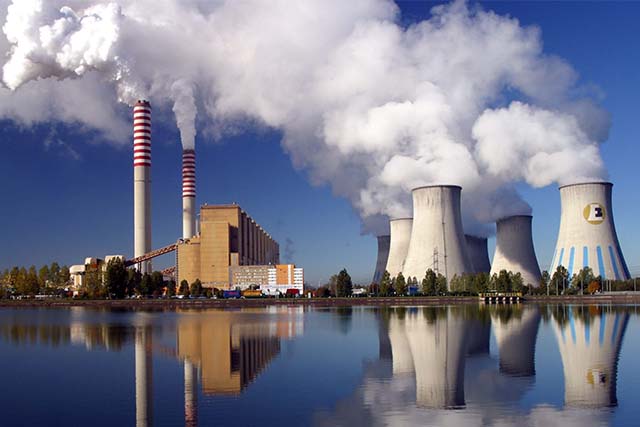Jobs are being lost by the US coal industry at the highest pace in decades as fuel is squeezed out of the energy sector that is dwindling due to the coronavirus pandemic. The number of coal mining workers fell by 12 percent to 43,800 in April, the U.S. Department of Labor reported. The financial picture is getting darker in the coal districts of Kentucky, West Virginia and Wyoming. "We believe that this whole situation of the pandemic will accelerate the decline of the coal industry," said Ben Nelson, Moody 's coal industry analyst. For an industry with a workforce of the size of a small town, coal is economically beyond its weight.
President Donald Trump made the resurgence of coal a key theme in his 2016 election campaign, delivering a rousing speech to miners wearing hard hats. But while the mine workers' union asked the Trump administration for standards to prevent Covid-19 from catching in cramped underground shafts, the government did not act on the request, the union spokesperson said. Coal mines have been deemed a necessary undertaking, enabling them to remain open throughout their stay at home orders. Yet US coal output is declining as lower electricity consumption hastens to shift to cleaner fuels.
Last week, the Energy Information Administration projected that US coal consumption would fall by 23 per cent in 2020 to 454 m short tons in 2020, well below the 11 per cent reduction forecast at the beginning of the year. Coal trains were transporting 3.4 m short tons a week from Wyoming, the leading producer of fuel, said Robert Godby, an economist at Wyoming University. They carried 5.3 m short tons a week a year ago. Traditionally, taxes on coal production accounted for around 15% of the state budget, he said.In the last six weeks, Prof Godby said, 520 workers have been furloughed or laid off in the Powder River Basin, the main coal-fired area between Wyoming and Montana. These include the North Antelope Rochelle of Peabody Energy, the largest coal mine in the world. NTEC, operated by the Navajo Nation, abandoned 130 mines that it bought last year after its previous owner filed for bankruptcy. On Friday, the government of Cheyenne convened its first special session since 2004 to allocate money for federal coronavirus aid.
A legislative report estimated revenue could fall between $556 million and $2.8 billion by 2022, as the state struggles with disease shocks and lower taxes on coal , oil and natural gas. "The problem we've had is that (economic) data isn't like riding a bike downhill — it's like being in the elevator where the cable snapped," said Prof. Godby. The US coal industry was in trouble before the coronavirus. The Federal Trade Commission blocked the cost-saving joint venture proposed by Peabody and Arch Coal. Peabody slashed its dividend and bond purchases. Arch Coal changed his name to Arch Resources on Friday to shed his association with the unloved commodity.


































